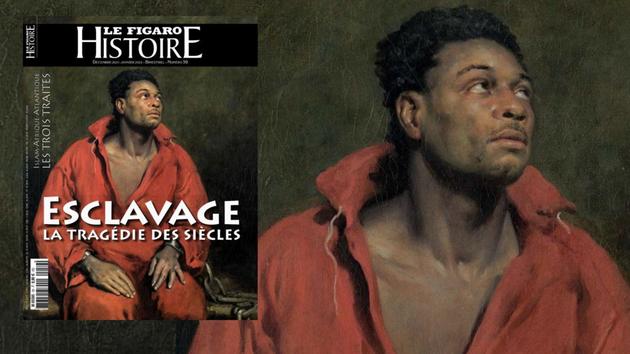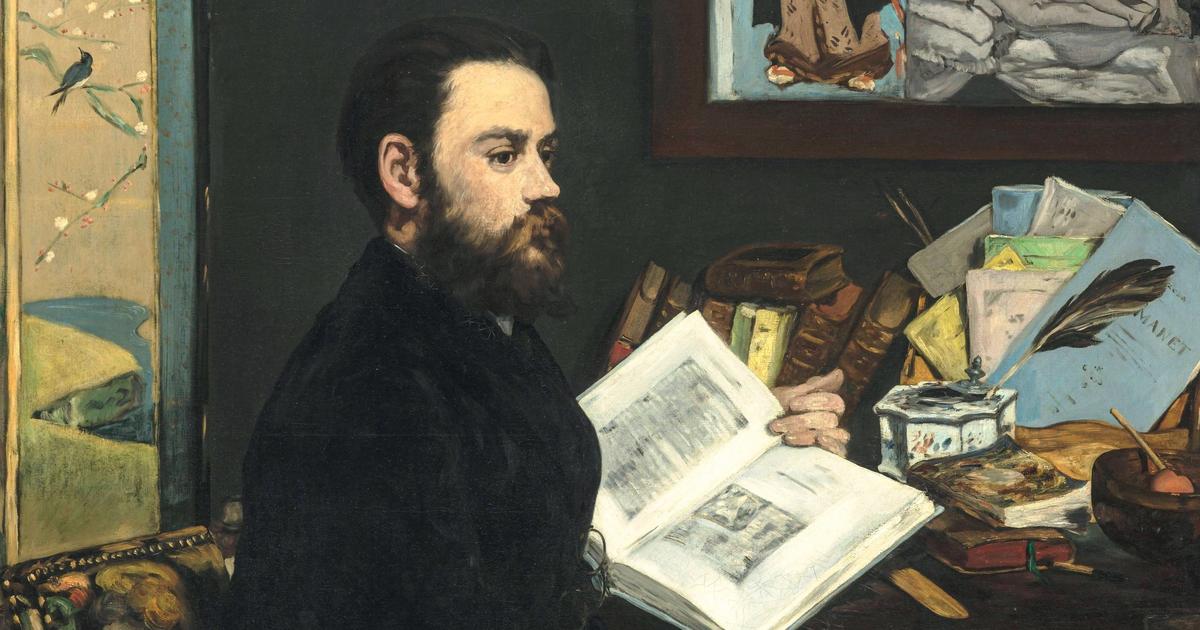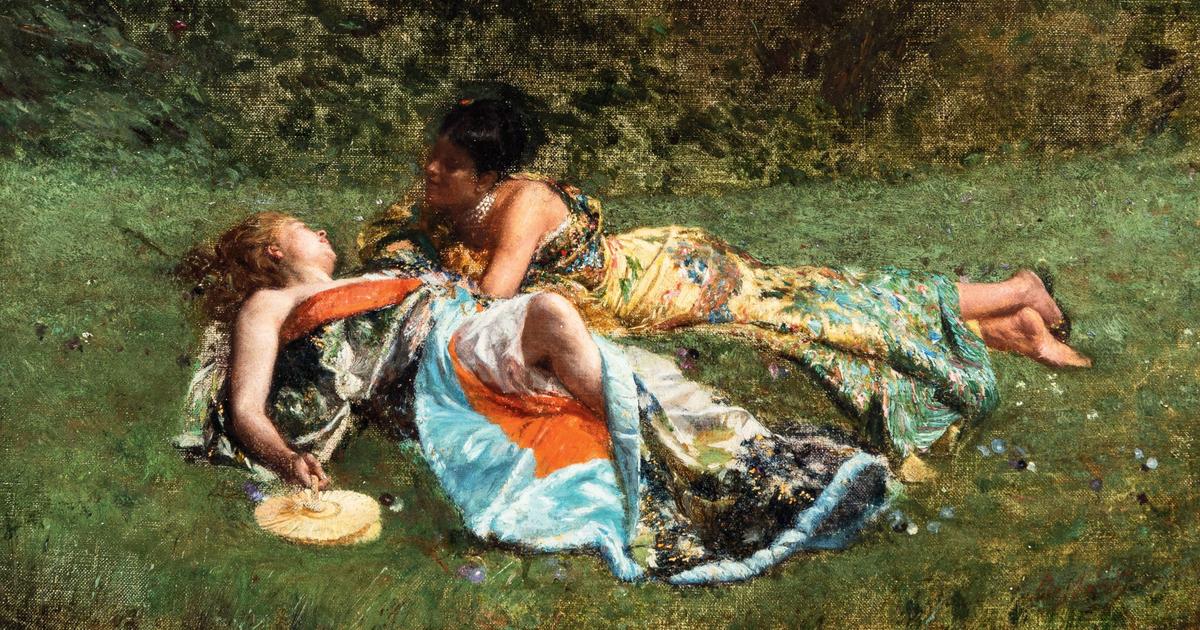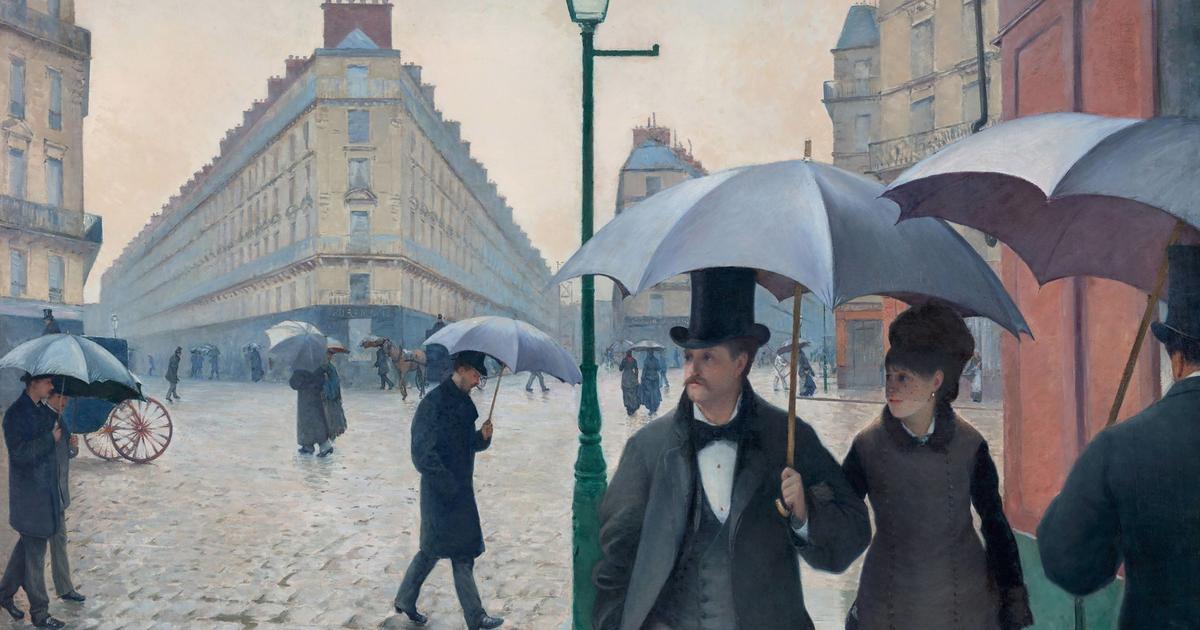Michel De Jaeghere is director of
Figaro Histoire
.
This editorial is taken from the new
Figaro Histoire
:
“Slavery, the tragedy of centuries”
, 132 pages, € 8.90, available at newsstands and on the
Figaro
online store
.
"There are many wonders in this world, there is none greater than man",
sings the choir of
Antigone.
And we marvel at hearing the poet, without waiting for the lights of Revelation, thus placing the human species at the center of the cosmos.
“He is the being who knows how to cross the gray sea, at a time when the southerly wind and its storms blow, and who goes his way in the midst of the abysses opened to him by the rising waves. He is the being who torments the august goddess among all, the Earth, the eternal and indefatigable Earth, with her plows which go unabated every year, the one who makes her plow by the products of her marches. "
What could be more disturbing than to note, however, that as far back as history goes, it offers us the spectacle of the enslavement of man by man? Prehistorians find traces of slavery as soon as sedentarization begins: with the Neolithic revolution, about twelve thousand years ago. It spreads with the emergence of the first city-states in the 4th millennium BC. J.-C .: as if it were consubstantial with the appearance of civilization. The capture of slaves will be the very stake of the wars waged in the Middle East by the first empires, and which will aim to seize as many captives as possible intended to serve as labor for the productive economy and for the construction of large monumental complexes, tombs, palaces and temples, the remains of which are our admiration.
Slavery was practiced as far as pre-Columbian America and the Far East. There was in the Middle Ages a Viking slave trade as there was an Islamic and trans-Saharan slave trade; the capture and the slave trade were the common lot of Africa long before the arrival of the Europeans does not give the departure of the Atlantic slave trade. Trafficking for twelve centuries in the Sahel brought together the black populations of the great rivers and the Muslim slave traders, claiming some 17 million victims and leading to the creation of slave kingdoms - in Dahomey, in the Sudan - some of which lasted until 'in the nineteenth century. It was, in the Mediterranean, one of the challenges of the clash of civilizations between Islam and the West, with the Barbary war.
The democracy, which Athens had invented, only worked because three out of four inhabitants lived there in the most complete enslavement.
For a long time, people hesitated to admit the importance of slavery in ancient Greece. The world in which the True, the Beautiful, the Good had been defined for the first time, no longer as what was useful and in conformity with the interests of the community, of the tribe, but as an ideal to be attained, a pure idea whose human achievements could only be a hesitant, imperfect reflection, thereby giving its movement and its development to the West in its search for perfection, its civilizing dynamic, this world had also been the one where a majority of the population had been deprived of all autonomy, of its first freedom; where man, that wonder celebrated by Sophocles, had been reduced to the condition of an object that one was free to buy and sell.
Aristotle, who had based his ethics on the observation of human nature, defined virtue as what allowed man to reach his end, to accomplish what was unique in the universe. , his sociability, his rationality, his taste for beauty, his sense of justice and his love of truth, his presentiment of transcendence, this same Aristotle had proclaimed in his
Politics
that because in them, force prevailed of reason, some men were slaves by nature. That they were intended to take the place of instruments, furniture animated by movement for the sole service of their masters, in order to let free men cultivate the virtues likely to lead them to perfection.
The democracy, which Athens had invented, itself functioned only with the help of public slaves, entrusted with the tasks of execution.
The Athens of Pericles only moved in the ideal beauty that the perfect proportions of the monuments of its Acropolis draw for us because three out of four inhabitants lived there in the most complete servitude.
Saint Augustine urges the masters to show justice and charity towards their servants.
He does not order them to be emancipated.
The history of the Church reveals similar paradoxes. No doubt Saint Paul had proclaimed that, in Christ, there was no longer a slave or a free man, thus sowing the seed of a questioning of an inequality accepted until then universally. No doubt Christian morality also immediately required masters to treat their slaves with humanity. Nevertheless, the practice was so general that it was simply unthinkable to challenge it head-on. Saint Augustine still describes, in the fifth century, the possession of slaves subject to their boss as one of the characteristics of the happy house. He urges masters to show justice and charity towards their servants. He does not order them to be emancipated. Bishoprics and monasteries held serfs in the Middle Ages.Some had given of themselves to enjoy their protection. Bishops and abbots could not free them from their own movement, because it was a question of Church property, which did not belong to them personally.
Saint Thomas Aquinas will promote, in the 13th century, priestly ordination as well as the marriage of serfs, thereby deepening the current of extension of rights and freedoms which had appeared in 8th century Europe with the prohibition on Christians from enslaving other Christians.
Still, impressed by the endorsement given to him by the Old Testament as well as by Aristotle, he refrained from questioning the very principle of servitude.
George Washington, the very figure of the liberation of the United States from the colonial power, had more than 200 slaves.
Isabella the Catholic forbids Christopher Columbus, at the end of the 15th century, to reduce to slavery the American Indians, destined in his eyes to become both his subjects and Christians, when at least they had peacefully welcomed the Europeans . No one objected, on the other hand, to the trade in
"negroes"
sold, in the ports where the Europeans took a break, by the African potentates. Slayer of the excesses of Spanish colonization and intrepid defender of the indigenous populations, the Dominican Las Casas himself advocated their importation. Colbert and his son regulated without embarrassment, for the Antilles, the modalities of their exploitation.
Montesquieu devoted, to book XV of
L'Esprit des lois,
corrosive pages to the good conscience of Christians who were satisfied with the enslavement of their fellows, multiplying quibbles to rule out any objection. Voltaire castigated slavery in
Candide
through the figure of the negro from Surinam, sold by his parents in Guinea, and his leg amputated by his owner, a Dutch merchant, for having tried to escape forced labor on his plantation. Both of these eminent representatives of our Enlightenment, however, had themselves made financial investments (indirectly at Montesquieu, in a more compromising manner for Voltaire) in the triangular trade! Many of the dignitaries of the Masonic lodges of Bordeaux in the 18th century had made their fortunes in the slave trade, between two meetings of learned societies where they discussed the freedom and progress of mankind. George Washington, the very figure of the liberation of the United States from the colonial power, had more than 200 slaves. Liberator of Haiti, Toussaint Louverture owned a dozen.We know that Napoleon reestablished slavery in the West Indies to pull Guadeloupe out of the economic chaos into which its abolition had plunged it.
“Master of a knowledge whose ingenious resources exceed all hope, [man] can then take the road of evil as well as of good.
"
Sophocles
In the face of the universality of evil, we are here speechless, and the obscurity of moral conscience which has allowed for so many millennia, so many centuries, the maintenance of an institution so contrary to the most elementary sense of Justice. urges us to take refuge in the comfort of moral condemnation.
"Master of a knowledge whose ingenious resources exceed all hope,
Sophocles had warned us,
[man] can then take the road of evil as well as of good."
And again:
“he excludes himself from the city, the one who lets crime contaminate him by bravado. Ah! May he no longer have a share in my home or among my friends, if that is how he behaves! "
Ruthless censor of bourgeois good conscience, Friedrich Engels nevertheless warns us:
"It does not cost much to go to war with general formulas against slavery (...) and to pour out a higher moral anger on such infamies. … ”
The narcissism of our time offers too many opportunities to reassure us on the cheap. The sight of the crimes of the past comforts us in the feeling of our moral superiority. He should worry us, on the contrary: if our fathers could have passed without seeing them beside such obvious abominations, if they could have looked elsewhere while a part of humanity was cut off from the fullness of existence. , shouldn't this alert us to other scandals? Lead us to ask ourselves if there are not other crimes that we tolerate without wanting to look them in the face ourselves and which we will consider, perhaps, after us, strange that they did not arouse, of for our part, no indignation, that we have admitted them as so many inevitable phenomena that it would be superhuman, unthinkable, to try to question?
"There are many wonders in this world, there is none greater than man",
but it happens that he behaves like a wolf for man.
It would be presumptuous to believe that the paradox has miraculously spared our time.
“Slavery, the tragedy of centuries”
, 132 pages, € 8.90, available at newsstands and on the
Figaro
online store
.









